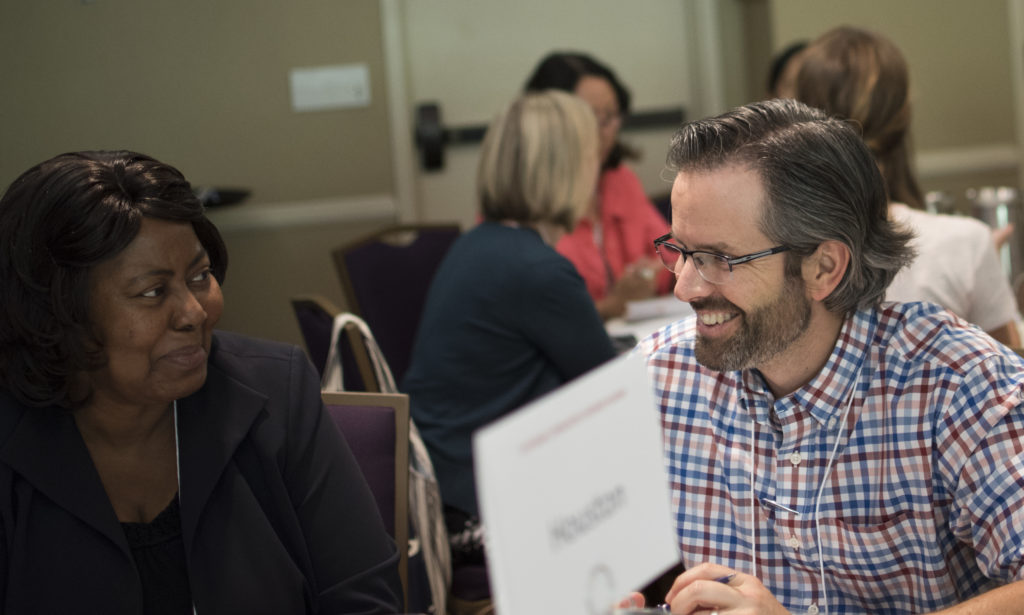This year’s Sustainable Communities Leadership Academy attracted perhaps our most geographically diverse cohort yet. From Anchorage to Houston to Washington, D.C., 12 cross-sector teams and a group of resilience-building experts convened in Denver, Colorado to explore innovations in building resilient communities.
The event truly mirrored the cross-sectoral nature of resilience building, bringing together individuals from nonprofits; education and research institutions; philanthropic foundations; and municipal, county, and state government agencies focused on health, food security, emergency management, and faith-based outreach.
We build our SCLAs to capitalize on this type of diversity of experiences, backgrounds, and perspectives. Prior to our events, we speak with each team individually to discuss their goals, challenges, and past successes. We then structure our agenda and speakers around specific opportunities for network building and knowledge sharing. Where we hear about one team facing a particular challenge, we find another team or national expert working through—or having overcome—a similar challenge, offering important openings for learning and collaboration.
A few common questions emerged among this SCLA’s teams during our initial conversations:
- How can we ensure equity is a part of our planning processes and outcomes?
- What are best practices for collaborating across sectors and jurisdictions?
- How can we improve resident and stakeholder communication strategies so we are all using common language around resilience to create shared understanding?
Because the teams came with a broad range of goals—from improving cross-jurisdictional collaboration to implementing green infrastructure projects and bolstering a sustainable local economy—they were able to find inspiration in each other’s work and view their own efforts with a fresh perspective.
Across locations, projects, and sectors, racial equity emerged as a compelling issue for many teams. We invited Nora Liu of the Center for Social Inclusion (CSI) to kick off the event with a discussion on leading with equity, which established racial equity as a core component of the conversations, sessions, and panels for the remainder of the event. Nora delved into the long-standing institutional and systemic policies—from literal walls in Seattle to redlining in numerous U.S. cities—that have entrenched and perpetuated inequitable racial outcomes. She offered insight into CSI’s strategies to dismantle this structural racial inequity, including changing the narrative, building capacity, and developing policy.
On a panel highlighting the recent resilience-building advancements of our host city of Denver, speakers delved into several local issues ranging from climate stressors to the region’s rapid growth rate, which has strained its infrastructure as well as its ecosystem. This panel reminded us that climate issues need not be so polarizing, showcasing their region’s progress toward resilience in their health, transportation, housing, and other sectors.


Other panels and sessions—led by subject-area experts from the participating teams, ISC, and our team of national experts—offered insight on a gamut of challenges from collaboration and alignment to working with diverse populations and communicating resilience.
These sessions, the time set aside for team meetings, and the networking opportunities at this event helped the teams build trust, solidify their commitment to their shared vision, generate new and exciting ideas, and identify concrete next steps. Having this diverse group of teams together in one place allowed individuals and teams to see their place in the broader national resilience movement. With a stronger arsenal of tools and ideas, these local leaders and changemakers are better equipped than ever to foster resilience that serves all members of their communities.
